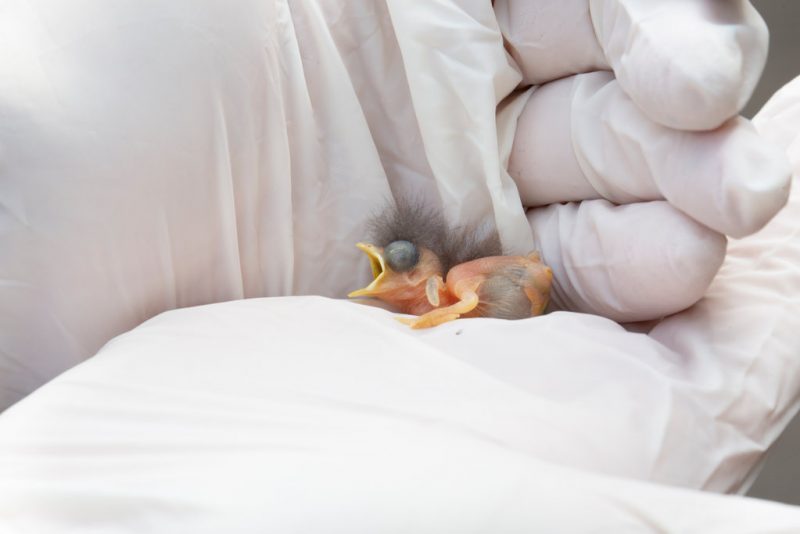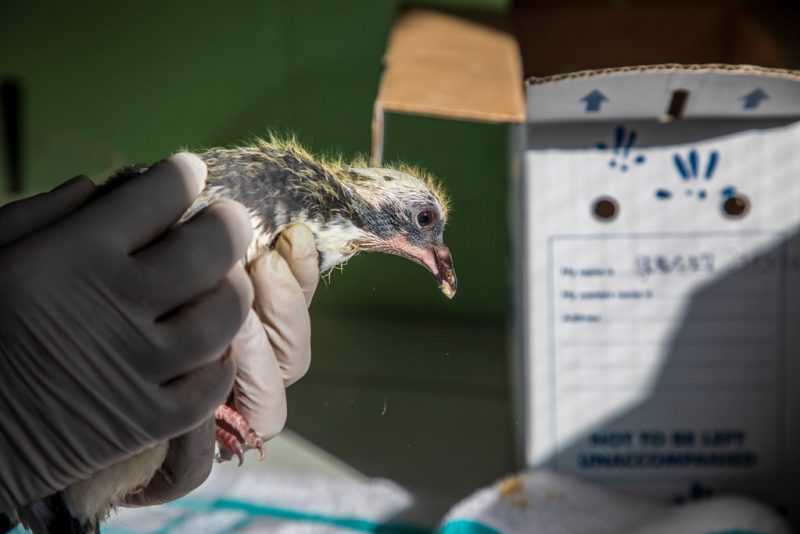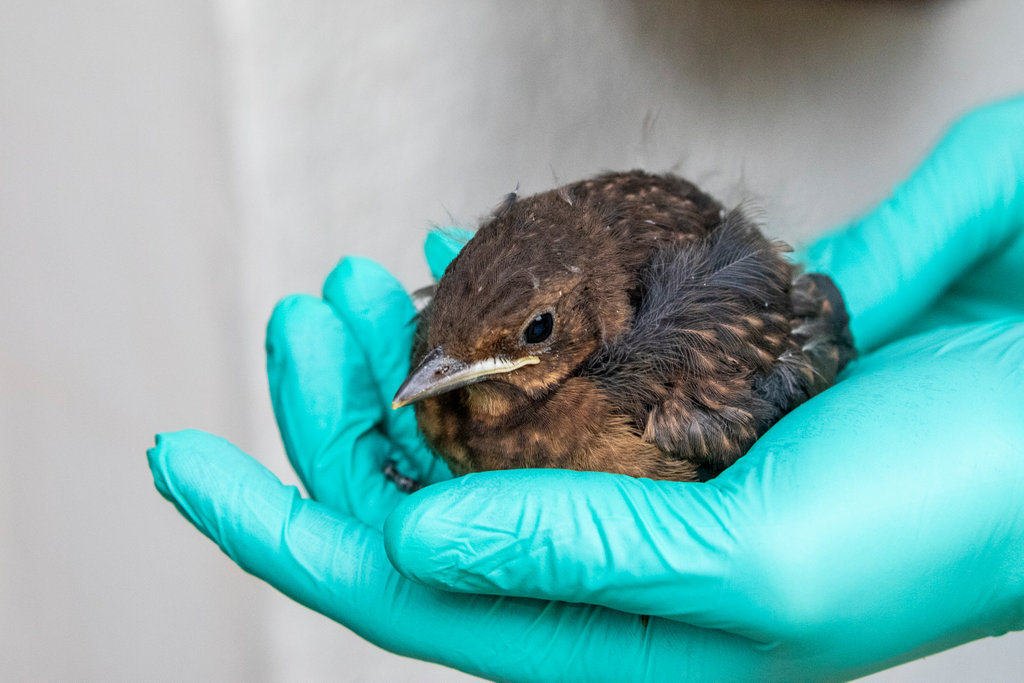What to do if you come across a young bird
Our photos show 2 young song (Passerine) birds (a blackbird fledgling above and a sparrow nestling below) and a pigeon squab (Columbidae) A mix of species we acknowledge but they are all youngsters at various stages in their early lives. In light of ‘baby bird season’, Defra and UKHSA have updated their position on public handling of young song birds species and pigeons. The approach as to what you should do if you find a baby bird differs depending on their age and the situation you find them in.
![]() Nestlings – (Bald or feathers still ‘in pin’) won’t survive long out of their nest. New guidelines suggests if you can identify the nest and if it’s safe to do so you can return the chick. All caution needs to be taken to not put your self in danger or to disturb the other nestlings. If there is no nest apparent, you can make an artificial one out of a plant pot and secure it to a nearby tree but make it shallow enough for the chick to be able to leave it when old enough. There’s lots more info here at RSPCA England and Wales.
Nestlings – (Bald or feathers still ‘in pin’) won’t survive long out of their nest. New guidelines suggests if you can identify the nest and if it’s safe to do so you can return the chick. All caution needs to be taken to not put your self in danger or to disturb the other nestlings. If there is no nest apparent, you can make an artificial one out of a plant pot and secure it to a nearby tree but make it shallow enough for the chick to be able to leave it when old enough. There’s lots more info here at RSPCA England and Wales.

![]() Fledglings – (Feathers but may have some fluffy down) on the other hand can and do live partially on the ground after leaving the nest. Their parents will feed and protect them and leaving them alone and observing is usually the best course of action. Some fledglings will hop/flutter but can’t fly properly at first. This is normal. However, obvious injuries such as bleeding, dragging a wing or not being able to stand will need attention.
Fledglings – (Feathers but may have some fluffy down) on the other hand can and do live partially on the ground after leaving the nest. Their parents will feed and protect them and leaving them alone and observing is usually the best course of action. Some fledglings will hop/flutter but can’t fly properly at first. This is normal. However, obvious injuries such as bleeding, dragging a wing or not being able to stand will need attention.

Below are links to some excellent info graphics by RSPCA England and Wales on what you should do if you come across a young bird:
NESTLING
FLEDGLING
![]() Vet practices/wildlife centres may see a wild bird that is injured but we always advise to ring ahead before turning up.
Vet practices/wildlife centres may see a wild bird that is injured but we always advise to ring ahead before turning up.
![]() Whilst handling a songbird or pigeon chick, disposable gloves should be worn and hands washed thoroughly afterwards.
Whilst handling a songbird or pigeon chick, disposable gloves should be worn and hands washed thoroughly afterwards.
![]() This handling advice does NOT apply to waterfowl or gulls and contact with other species of wild birds should be avoided.
This handling advice does NOT apply to waterfowl or gulls and contact with other species of wild birds should be avoided.
Avian Influenza
The Avian Influenza prevention Zone remains in place. Defra and APHA have assessed the risk of handling small passerine birds as low. However, this advice is for the Avian Influenza A(H5) only. Should other variants present, they will require an assessment review.
Waterfowl – Any bird that lives on the water should not be handled and this includes young chicks.
Although fledgling chicks look vulnerable and there is a risk of predation, they stand a better chance of survival being left in their environment. If you are in doubt, leave them and observe for a few hours. No-one can look after young birds as well as their parents.
Found a dead bird?
Do not touch or handle the body and report immediately to Gov.uk

